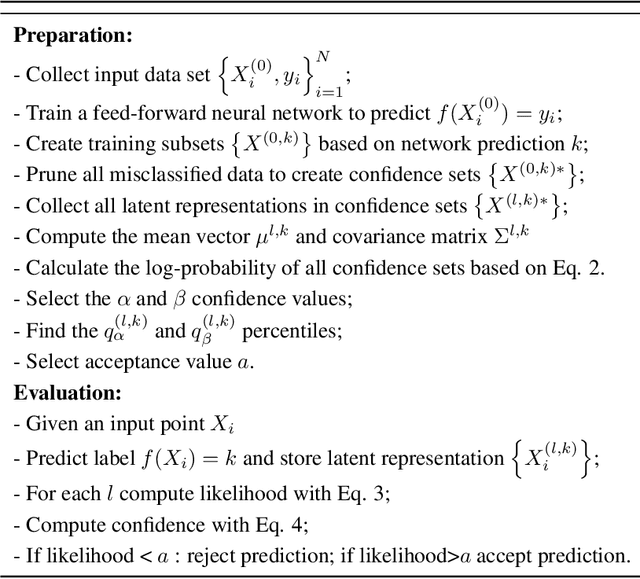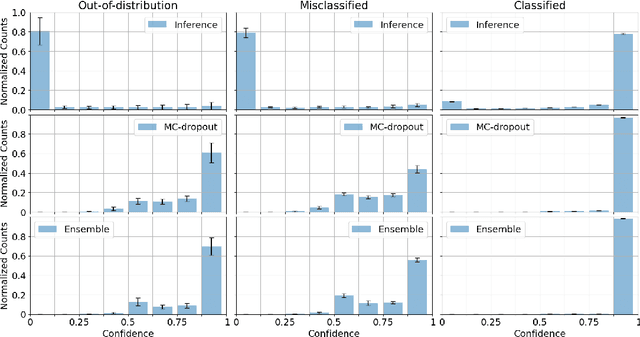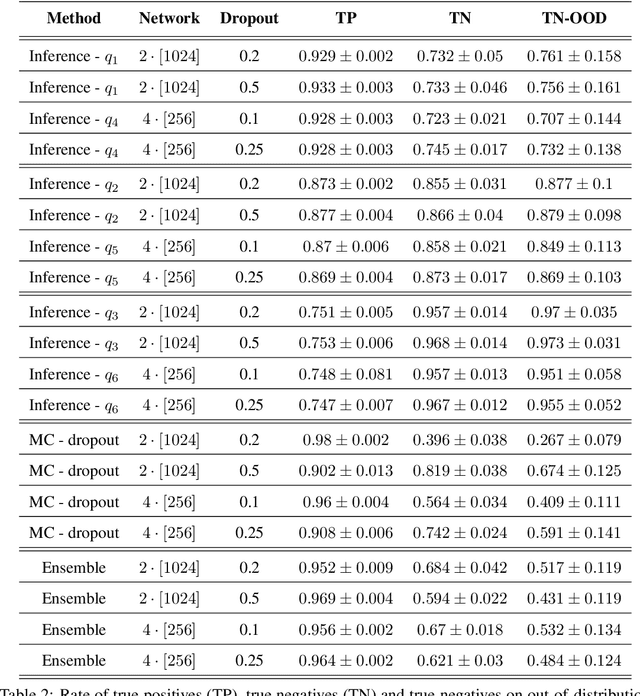Uncertainty Quantification in Deep Neural Networks through Statistical Inference on Latent Space
Paper and Code
May 18, 2023


Uncertainty-quantification methods are applied to estimate the confidence of deep-neural-networks classifiers over their predictions. However, most widely used methods are known to be overconfident. We address this problem by developing an algorithm that exploits the latent-space representation of data points fed into the network, to assess the accuracy of their prediction. Using the latent-space representation generated by the fraction of training set that the network classifies correctly, we build a statistical model that is able to capture the likelihood of a given prediction. We show on a synthetic dataset that commonly used methods are mostly overconfident. Overconfidence occurs also for predictions made on data points that are outside the distribution that generated the training data. In contrast, our method can detect such out-of-distribution data points as inaccurately predicted, thus aiding in the automatic detection of outliers.
 Add to Chrome
Add to Chrome Add to Firefox
Add to Firefox Add to Edge
Add to Edge